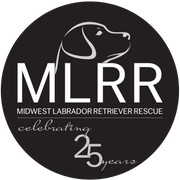Adult Dog House Training
Teaching older dogs that have not been taught to toilet appropriately can be a challenge. Most dogs raised in a normal domestic environment respond well to a good housetraining schedule, but those that have lived in compromised backgrounds, such as puppy mills, may be more difficult to teach.
Before you begin the housetraining process make sure that inappropriate toileting is not linked to a medical issue, by taking your dog to the veterinarian for a thorough medical check up.
How Do I Start Housetraining My Adult Dog Again?
- Start with a good toileting schedule that goes back to basics, allowing access to outside areas every hour.
- Encourage your dog to toilet with a verbal cue such as “go potty”.
- When your dog has finished toileting praise him but do not get overly excited.
- If you catch your dog in the act of toileting verbally interrupt him and take him outside to finish up. Try not to scare him with your interruption so that he still feels confident toileting in front of you when you are both outside.
- If your dog has had an accident and you were not there to catch him, it is too late to redirect him.
- Avoid punishing a dog for toileting, especially if you are not there to catch him in the act. Punishment causes stress that might cause your dog to toilet even more.
- Feed your dog at set times so you can predict when he might need to toilet.
- Limit water after a certain time in the evening if your dog is having accidents at night. Ice cubes can help your dog take water in at a slower pace while still quenching his thirst.
- Keep an eye on times when your dog is more likely to toilet. These include after he has eaten, woken from a nap, first thing in the morning, after vigorous play and after a training session.
- Take him outside to various locations to encourage him to go but make sure he feels confident enough to toilet in each environment.
- Many dogs do not want to toilet outside because they feel vulnerable.
- Gradually decrease the frequency of trips outside as your dog builds up control.
- Follow a schedule that builds up a predictable and reliable routine.
- Be patient and sensitive as your dog learns. Never rub his nose in an accident. This will only delay his success and build up a negative association with you.
Courtesy of Victoria Stilwell, Positively
